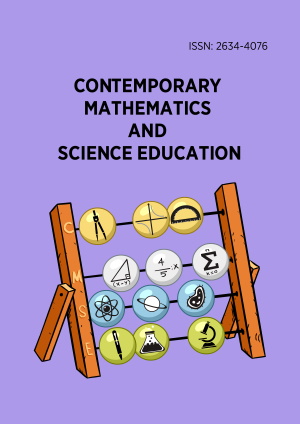Keyword: mathematical modelling
2 results found.
Research Article
Contemporary Mathematics and Science Education, 3(2), July 2022, ep22017, https://doi.org/10.30935/conmaths/12363
Research Article
Contemporary Mathematics and Science Education, 3(1), January 2022, ep22011, https://doi.org/10.30935/conmaths/11932

 The articles published in this journal are licensed under the CC-BY Creative Commons Attribution International License.
The articles published in this journal are licensed under the CC-BY Creative Commons Attribution International License.